#Endoscopy in medical diagnostics
Explore tagged Tumblr posts
Text
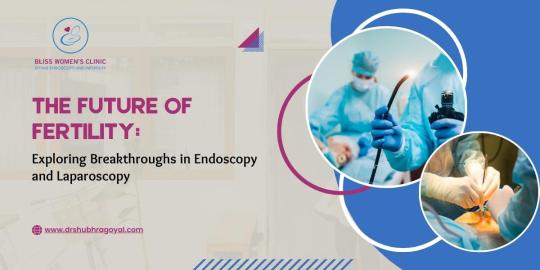
Explore the future of fertility with breakthroughs in endoscopy and laparoscopy. Dr. Shubhra Goyal offers insights on advancing reproductive health.
Do Visit: https://www.drshubhragoyal.com/welcome/blogs/the-future-of-fertility:-exploring-breakthroughs-in-endoscopy-and-laparoscopy
#Endoscopy and Laparoscopy#Endoscopy and laparoscopy procedures#Medical uses of endoscopy and laparoscopy#Endoscopy vs. laparoscopy comparison#Benefits of endoscopic examinations#Laparoscopic surgery advancements#Gastrointestinal endoscopy techniques#Minimally invasive laparoscopic procedures#Endoscopic imaging technology#Laparoscopy in surgical diagnosis#Endoscopy for digestive disorders#Laparoscopy for abdominal surgeries#Endoscopy in medical diagnostics#Laparoscopic surgical instruments#Endoscopy for internal visualization#Laparoscopy and its applications#Endoscopic screening and treatment#Laparoscopic hernia repair#Endoscopy for upper GI tract
1 note
·
View note
Text
youtube
Explains How Does Endoscopy and Endoscopic Biopsy Work
Understand the process of endoscopy and biopsy procedures. Learn how these diagnostic tools help detect and diagnose various health conditions.
0 notes
Text
Unlock the secrets of optimal gastrointestinal health with our in-depth guide on "The Role of Endoscopy." Delve into the comprehensive overview to understand how endoscopy plays a pivotal role in diagnosing and treating gastrointestinal issues. Empower yourself with knowledge for a healthier digestive future.
#Endoscopy#Gastrointestinal Health#Digestive Health#Medical Procedures#Diagnostic Techniques#Gastrointestinal Disorders#Endoscopic Procedures#Gastrointestinal Treatment#Endoscopy Overview#Digestive Wellness#Medical Imaging#Gastrointestinal Examination#Health Education#Medical Insights#Digestive System#Healthcare Information#GI Health#Endoscopic Technology#Gastro Health Awareness#Medical Advancements.
0 notes
Text
Gastrointestinal Diagnostics: Navigating Landscape, Market Trends and Analysis
The global gastrointestinal diagnostics market size is expected to reach USD 6.87 billion by 2030, according to a new report by Grand View Research, Inc., expanding at a CAGR of 4.58% from 2022 to 2030. Rising awareness about gastrointestinal disorders and a surge in gastrointestinal disorder testing are the major factors driving the market. Moreover, technological advancements in gastrointestinal infection testing are expected to cater to the market demand. For instance, in May 2022, QIAGEN launched QIAstat-Dx Rise, which is capable of providing results in a span of one hour for multiple diseases.

Gastrointestinal Diagnostics Market Report Highlights
On the basis of test type, the endoscopy segment held the largest share in 2021 owing to rising demand for minimally invasive procedures
Based on technology, the PCR accounted for the second-largest share in 2021 due to the availability of a robust product portfolio and rising product launches
The infection application segment held the largest share in 2021 owing to the higher incidence of GI infections and the surge in awareness
On the basis of test location, the central laboratories segment held the largest share in 2021. The point-of-care segment is anticipated to register the fastest growth rate throughout the forecast period
Asia Pacific is expected to exhibit the fastest growth rate over the forecast period due to the rising investments by market players and increasing research activities in the region
Gain deeper insights on the market and receive your free copy with TOC now @: Gastrointestinal Diagnostics Market Report
The increasing trend of a sedentary lifestyle, lack of exercise, unhealthy eating habits, and a higher prevalence of obesity are anticipated to fuel GI diagnostics market growth. According to the CDC, the prevalence of obesity among people in the U.S. is between 30-40%. States such as Alabama, Alaska, and Arizona have the highest prevalence of obesity in the U.S. Obesity is associated with GI diseases such as gastroesophageal reflux disease, diarrhea, gastric cancer, and others. Hence, it is expected to impetus market growth.
Technological advancements associated with gastrointestinal diagnostics for early diagnosis and efficient testing are expected to augment market growth during the forecast period. For instance, in March 2022, Luminex Corporation obtained a CE mark for its NxTAGxMAP GI Pathogen Panel. This test is a detailed multiplex test that detects nucleic acids from the 16 most clinically relevant viral, parasitic, and bacterial pathogens in stool samples. Moreover, the test is capable of providing results on the same day and can run 96 samples at a time.
Moreover, the presence of organizations involved in increasing awareness regarding gastrointestinal disorders is expected to facilitate market expansion. For instance, organizations such as the Gastrointestinal Society (Canadian Society of Intestinal Research) and the International Foundation for Gastrointestinal Disorders are actively involved in promoting gastrointestinal health and broadening the understanding of GI disorders, thereby augmenting market growth.
Furthermore, various strategic initiatives undertaken by market players to strengthen their product portfolio and expand global footprints are likely to provide lucrative growth opportunities for the market. For instance, in November 2021, The Life Raft Group and Bayer Pharmaceuticals announced a research collaboration for broadening access to genomic testing for GI stromal tumor patients. The aim of this collaboration is to advance precision medicine and improve genetic testing to identify patients in the U.S.
In addition, in June 2021, Prometheus Laboratories, Inc. announced an agreement with MultiPlan for accessing specialized gastrointestinal testing. Prometheus offered its breakthrough testing solutions to improve the outcome of GI disorders. This agreement has allowed the testing service of Prometheus to reach the maximum number of customers.
#Gastrointestinal Diagnostics#GI Health#Digestive Health#Medical Diagnostics#Healthcare Technology#Endoscopy#Medical Imaging#GI Disorders#GI Endoscopy#Gastroenterology#Precision Medicine#Gastrointestinal Health#GI Healthcare
0 notes
Text
I've been following what's been going on with Belphie the kitten and his person, Greer Stothers, has just mentioned pet insurance in a tag on a post and I wanted to give an example from my life backing up why pet insurance can be a good idea and why I think it is worthwhile.
Two years ago my sister's dog had bloat while she was on vacation. The kennel he was staying at recognized symptoms and called my sister to clear them to take him to the emergency vet. My sister is very financially secure and this dog is an enormous part of her life, so she said yes with barely a moment of hesitation. That ended up being about twelve thousand dollars of emergency surgery.
Large Bastard and I got pet insurance for Tiny Bastard the same week because we realized that if someone had presented that option to us, we would have had no choice but to have Tiny Bastard put down, and we didn't want to be put in that position.
I did a lot of research about different kinds of pet insurance and different levels of coverage and annual maximums and deductibles and so on and so forth. Tiny Bastard is a senior dog, so this was going to be expensive no matter what options we went with, so I chose a moderately priced plan with a $500 annual deductible, unlimited annual coverage, that pays 80% of the bills incurred annually below the maximum. What that means is that we pay the first $500 of care totally out of pocket, after which point we are reimbursed 80% of any vet bills for care covered by the plan.
The first year we had this plan I was kind of iffy about it. It's a noticeable monthly expense and we didn't even spend the deductible in vet bills the first year. Except that a month before the policy was set to renew, Tiny Bastard got diagnosed with diabetes. We now have monthly insulin costs and syringe costs; there are tests she has to have regularly to monitor her overall condition and we need to do more frequent vet visits to track symptoms.
Suddenly the insulin alone means that the insurance is break-even within six months and the additional visits and tests are something we can afford instead of something we'd have to put on credit.
Our plan (through ManyPets) covers medication, surgery, diagnostics, medical equipment, and euthanasia and cremation. It doesn't cover pre-existing conditions, joint conditions for dogs who were signed up over a certain age, dental care, spay/neuter, vaccinations, or prescription food but honestly all of that makes me just kind of wish we'd signed her up earlier - her knee problems *would* be covered if we'd had her signed up as a puppy, and the monthly cost would have been lower if we'd signed her up then. And there are at least a few emergency vet bills that I wouldn't still be paying off on my credit card. Hell, I've probably paid more in interest on some bruising she got in a fight three years ago than I have for this policy as a whole.
I am glad that Greer is able to take care of Belphie. I am glad that my sister was able to take care of her dog. But I'm also really, really glad that for a relatively low cost, I would be able to take care of Tiny Bastard if she were catastrophically injured, or if she needed emergency surgery. I'm glad that I'm able to take care of her now with her medications and her additional vet visits.
There are a lot of people who say that pet insurance isn't worth it, especially not for young animals. But if your young animal gets very sick, or gets badly injured, or eats a hairband and needs an emergency endoscopy, then it will probably be VERY worth it. It's a risk/reward question. You feel like you're wasting money if you're paying for a policy that you never use, but honestly that just means you're lucky to have a healthy pet.
I'm lucky that Tiny Bastard was relatively healthy before I got the insurance; I'm also lucky that she was insured when she was diagnosed with a chronic illness that will need lifelong care. This enables me to provide care for her that would otherwise be financially unmanageable, and that makes the insurance *extremely worth it* from my perspective.
And Belphie is a good example of why it's a good idea to get coverage even for very young pets. Greer is recommending it because this kitten has required a tremendous amount of care during a period in his life when it's generally taken for granted that a cat will be healthy. (And Greer is not stupid for forgoing pet insurance - pet insurance is still a relatively new concept and there are lots of people who are leery of it for a number of good reasons)
So I'd say that if you've got a pet or are getting a pet it is very worthwhile to find a pet insurance plan that fits in your budget. There are a variety of plans out there and some are very inexpensive. Check coverage levels (you can even get some with wellness plans that include dental care and vaccinations) and see if there's something that works for you.
I personally don't think I'm ever going to own another pet without having pet insurance. It's ridiculous how much easier it is for me to say yes to diagnostic tests or different treatments than it was before because I know I'm going to be able to fit Tiny Bastard's care into our budget.
951 notes
·
View notes
Text
Long vent about being young and disabled. TLDR I’m scared, my health is failing, and please check in on your friends. Stay safe 🫶🏻
One year ago today was the first time I ever walked in to Mass General Hospital to meet with a specialist to talk about a condition I was sure I didn’t have.
And I was right. Nothing was wrong. They gave me meds just to seal the deal and scheduled an appointment 6 months later so they could confirm I was ok. I just went on with normal life.
It started small
I wasn’t hungry. They some foods made me sick, then everything made me sick. One frantically scheduled trip to MGH later I had 2 new meds and an endoscopy scheduled.
In late November, I had my diagnosis, stage 3 GERD. I was put on another medication, that worked wonderfully and told that they’d see me in 6 months.
It almost feels like that sentence is a curse.
January. I gain another specialist, took way too many blood tests, an x-ray and an ultrasound only for them to all come back perfect, and I was told I had to wait until May for the next test. Meanwhile my stomach issues got worse and more complicated. I stopped responding to most of my medications. They threw everything they had at me and told me that once again I was going to have to wait until June
February, I began to realize the pain in my back and knees aren’t normal. I ignore it, not wanting to bring up any more issues.
March, I’m tired all the time. I assume it’s because I’m a teenager. I began to go to bed early. No improvement. The muscle in my left lower leg begins to constrict and stiffen.
April, I start to lose coordination. Just little tiny things like not being able to walk straight and tripping a lot. Things that add up when you start paying attention. Then, halfway through I began to get excruciating back pain that runs up and down my spine. Sometimes it’s so bad I feel sick. My left leg feels weak.
May. Right leg begins to constrict and feel weak. I began to slur my words, more and more frequently. I finally receive the test I’ve waited so long for. Nothing. Most beautiful test they’ve ever seen. I bring up my other collection of symptoms. She orders an MRI and tells me it could be a tethered cord in my spine. Or something else.
The MRI is May 20th
If it’s a tethered cord, it will most likely require surgery. If it’s not, it’s most likely a neurological problem.
That scares me so bad.
I’ve never really been one for anniversaries, and just happened to see this while looking through my records. It hit me way harder than I expected. I feel like the world has fallen under my feet. Just a year ago I was completely normal. NowI’m running out of diagnostic tests. The best option I have for diagnosis is a chronic but manageable illness. I’m not ready to think about anything else yet. And everyday I go to school, put on my smile, and see my friends. I’m stuck in the weird spot of not wanting to complain but also feeling so isolated and lonely. Even if I were to talk, they wouldn’t quite understand. I’ve told one person because I had to. He sometimes mocks me for it. I try to laugh along, because he doesn’t mean to hurt me, but every joke feels like another reason to just lock myself away and handle the pain.
Anyways if you got all the way here, thanks for reading. And please please please be nice to your friends, check in on them, and listen when they talk. The world is scary, keep each other safe 🫶🏻
#not incorrect quotes#personal rant#vent post#actually disabled#disabled#chronic illness#chronic pain#disabled teen#young and disabled#GERD#check in on your friends#for me pls
4 notes
·
View notes
Text
Reading hospital discharge notes is always so fascinating :/
My newest one is from an endoscopy and the summarizing notes are all like "everything is okay! You have stomach issues bc you take too many pain meds! But everything is looking totally normal!"
But knowing what the medical mumbo jumbo in the diagnostics part means paints a very different picture... "That is inflamed and also this part and yeah basically everything is inflamed and your connective tissue is hardened and also the parts making up the lining of your stomach are stuck together and this part is also inflamed"
#chronic illness#disability#disabled#chronically ill#how is this my life??#why is this my life??#hypermobility#ambulatory wheelchair user#gi issues#endoscopy#tw: medical gaslighting#cw: medical gaslighting#tw: hospital#cw hospital#tumblr#cripple punk
39 notes
·
View notes
Text
In a normal esophagus, contraction waves are progressive, and the lower esophageal sphincter (LES) relaxes properly to allow food to pass. However, disorders like achalasia, diffuse esophageal spasm, and hypercontractile esophagus disrupt this process.
In general, all patients with suspected achalasia should initially undergo upper endoscopy and/or esophageal barium swallow; findings may support the diagnosis.
Esophageal manometry is indicated to establish the diagnosis (confirmatory test of choice), irrespective of the initial imaging findings.
Achalasia is marked by the failure of the LES to relax, leading to difficulty swallowing, regurgitation, and weight loss. A key diagnostic feature is the bird-beak sign on a barium swallow, with high LES resting pressure observed on manometry.
Diffuse esophageal spasm presents with retrosternal chest pain and simultaneous, repetitive contractions. Patients often experience dysphagia and pain, particularly during eating. The hallmark finding is corkscrew esophagus on imaging.
Lastly, hypercontractile esophagus, also known as jackhammer esophagus, shows extremely strong contractions and often retrosternal pain. Manometry reveals a high distal contractile integral (DCI), indicating very forceful contractions.
Management includes lifestyle changes, medications like calcium channel blockers or nitrates, and in severe cases, endoscopic therapy or surgery to improve esophageal function and patient quality of life.
16 notes
·
View notes
Text
Equine Veterinarian Videography Pro Tips

Dodge embarrassing and irrelevant footage in your equine veterinarian highlight reel. Knowing how a horse veterinarian works to keep them healthy and thriving will help you capture the most compelling vet and horse interaction for a stunning highlight reel.
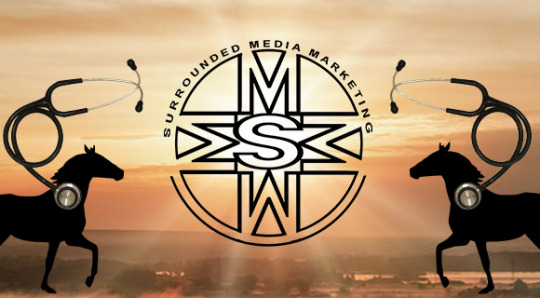
surroundedmedia.com gathered essential information about what equine veterinarians do, how they diagnose and treat horses, the best interactive moments to capture, and what makes a compelling highlight reel.
What Does an Equine Veterinarian Do?
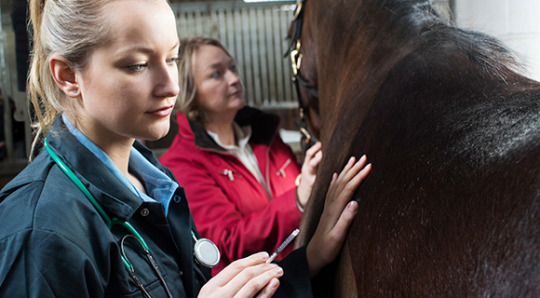
Equine veterinarians provide essential horse care, ensuring their health, performance, and overall well-being. Capturing their work on video educates viewers and highlights the dedication and skill required in equine medicine. Equine veterinarians perform multiple tasks to keep horses healthy and sound. Here are 15 primary responsibilities:
Conduct comprehensive health examinations
Diagnose lameness and musculoskeletal issues
Administer vaccinations and parasite control treatments
Perform dental care and corrective procedures
Provide reproductive services, including artificial insemination
Carry out emergency care for injuries and illnesses
Prescribe medications and develop treatment plans
Manage colic cases with surgical or non-surgical interventions
Monitor and treat respiratory conditions
Advise on nutrition and weight management
Collaborate with trainers and owners on performance issues
Perform diagnostic imaging such as X-rays and ultrasounds
Implement preventative health programs
Educate owners about proper care and management
Oversee rehabilitation following surgery or injury
Each task requires precision, compassion, and extensive equine anatomy and behavior knowledge.
Diagnosing and Treating Horses

Equine veterinarians utilize traditional clinical methods and advanced diagnostic tools to evaluate a horse's health. A typical diagnosis process includes:
History Taking - Gathering information from owners about a horse’s behavior, diet, exercise routines, and recent changes.
Physical Examination - Assessing vital signs, inspecting limbs, eyes, and respiratory function, and palpating the body to locate pain or abnormalities.
Diagnostic Imaging - Using X-rays, ultrasounds, or endoscopy to view internal structures.
Laboratory Testing - Analyzing blood, urine, or tissue samples to detect infections, metabolic imbalances, or other conditions.
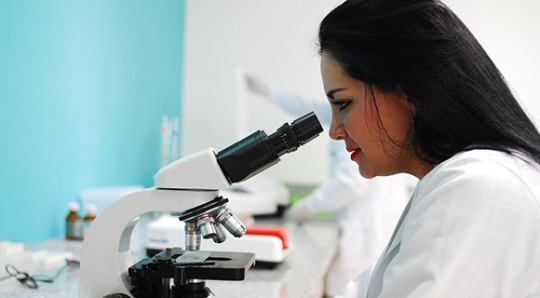
Treatment plans depend on the diagnosis. They might include administering medications, recommending rest or modified exercise, performing surgeries, or suggesting nutritional adjustments. Preventative care, such as vaccination schedules and routine check-ups, is crucial in maintaining a horse's health.
How Often Should Horses Be Visited by a Veterinarian?
Regular veterinary visits are crucial to ensure early detection of potential issues. Ideally, horses should have a comprehensive health check at least once annually. However, more frequent visits might be necessary for performance horses, older animals, or those with chronic conditions. Seasonal check-ups, particularly before and after intense training periods or competition seasons, can help maintain optimal health and performance.
Best Equine Veterinarian Moments to Capture on Video

When creating a highlight reel for equine veterinary work, focus on moments demonstrating skill, compassion, and the human-animal bond. Consider capturing:
Examinations and Diagnostics: Footage of veterinarians performing thorough check-ups, taking X-rays, or conducting ultrasounds.
Emergency Interventions: Dramatic, yet controlled, moments when rapid response saves a horse’s life during a colic crisis or severe injury.
Treatment Procedures: Close-ups of delicate procedures, such as dental work or wound care, highlighting precision and care.
Owner Consultations: Interactions where veterinarians explain diagnoses and treatment options, showcasing empathy and professionalism.
Rehabilitation Sessions: Document progress during recovery, emphasizing improvements and the positive impact of veterinary care.

These interactions educate the public and build trust between veterinarians and the community.
Components of a Compelling Highlight Reel
A high-quality highlight reel should weave together informative and engaging content. Here are key elements to include:
Clear Narration: Use voiceover or on-screen text to explain procedures, diagnoses, and the importance of preventive care. Dynamic Visuals: Combine wide shots of clinical settings with close-ups of detailed procedures, ensuring a balanced visual narrative. Emotional Connection: Capture moments that reveal genuine care, such as gentle interactions with horses or reassuring gestures toward worried owners. Before-and-After Comparisons: Show improvements in a horse’s condition post-treatment to illustrate the effectiveness of veterinary care. Professional Editing: Employ smooth transitions, appropriate background music, and clear labeling of procedures to keep viewers engaged and informed.
Watch this video to see a professionally made equine veterinarian video.
youtube
Preventive Measures in Equine Health

Prevention is a cornerstone of equine veterinary care. Regular check-ups, proper nutrition, and a tailored exercise regimen help maintain a horse's health and prevent many severe conditions. Veterinarians also educate owners on the following:
Maintaining a clean, safe environment
Implementing routine vaccination and parasite control schedules
Monitoring for early signs of lameness or discomfort
Providing appropriate rest periods after strenuous activities
This proactive approach reduces emergency visits and ensures horses perform at their best.
Videography Pro Tips for Equine Veterinarians
In this article, you discovered crucial information about what equine veterinarians do, how they diagnose and treat horses, the best moments to capture, and what makes a compelling highlight reel.
Equine veterinarians are vital to a horse’s health and success, performing responsibilities ranging from routine care to emergency interventions. Capturing their work on video educates audiences and celebrates the artistry and expertise behind equine medicine.
Ignoring the need to educate yourself on equine veterinarian activities and practices will leave you missing out on exceptional footage, resulting in poorly constructed highlight reels or promotional videos.
Sources: pmc.ncbi.nlm.nih.gov/articles/PMC3898908 aaep.org
Surrounded Media LLC
177 Fairway Drive Newnan, GA30265 (770) 727-1577
To see the original version of this article, visit https://www.surroundedmedia.com/blog/equine-veterinarian-videography-pro-tips
#videography#drone videography#drone videography atlanta#professional videography atlanta#cinematic storytelling atlanta#Equine Veterinarian#Horse Vet#Veterinarian Videography#Youtube
2 notes
·
View notes
Text
Expert Gastroenterology in Durgapur Your Path to Digestive Health

Durgapur, a leading healthcare destination in West Bengal, is home to advanced medical facilities offering top-tier gastroenterology in Durgapur. These specialized departments provide comprehensive care for digestive system disorders, combining cutting-edge technology with expert medical professionals to ensure optimal patient outcomes.
Why Choose Gastroenterology in Durgapur?
The gastroenterology in Durgapur is renowned for its state-of-the-art diagnostic and treatment facilities. Equipped with advanced tools like endoscopy, colonoscopy, and imaging systems, these centers accurately diagnose and treat conditions such as acid reflux, irritable bowel syndrome (IBS), liver diseases, and colorectal issues. Hospitals in Durgapur prioritize patient comfort, delivering precise care with minimal discomfort.
Comprehensive Gastroenterology Services
Durgapur’s gastroenterology departments offer a wide range of services, including:
Diagnostic Procedures: Endoscopy, colonoscopy, and capsule endoscopy for accurate detection of digestive issues.
Therapeutic Treatments: Management of ulcers, gallstones, pancreatitis, and inflammatory bowel disease (IBD).
Liver Care: Treatment for hepatitis, cirrhosis, and fatty liver disease.
Minimally Invasive Surgeries: Procedures like laparoscopic cholecystectomy for gallbladder issues.
Cancer Screening: Early detection of gastrointestinal cancers through advanced imaging and biopsies.
These services are supported by modern operation theaters and adhere to strict safety protocols, ensuring high success rates.
Expert Gastroenterologists and Patient-Centric Care
The gastroenterology in Durgapur is staffed by highly qualified gastroenterologists with extensive training and often international certifications. They work closely with patients to understand their symptoms and medical history, offering personalized treatment plans. Pre-procedure counseling and post-treatment follow-ups ensure a seamless experience, while dieticians and support staff provide holistic care for long-term recovery.
Affordability and Accessibility
Compared to metropolitan cities, gastroenterology in Durgapur is cost-effective, making high-quality care accessible to a wider population. Durgapur’s well-connected infrastructure allows easy access for residents of West Bengal and neighboring states. Many hospitals offer flexible payment options and teleconsultation services, enhancing convenience for patients.
Choosing the Right Gastroenterology Center
When seeking gastroenterology in Durgapur, consider the hospital’s accreditation, the expertise of its gastroenterologists, and patient reviews. Ensure the facility uses advanced diagnostic tools and follows international hygiene standards. Visiting the center or scheduling a consultation can provide insights into its environment and care quality.
Conclusion
The gastroenterology in Durgapur stands out for its blend of expertise, advanced technology, and affordable, patient-focused care. Whether you’re managing a chronic digestive condition or seeking preventive screenings, Durgapur’s gastroenterology departments offer reliable solutions. Consult a trusted gastroenterologist in Durgapur today to take control of your digestive health.
2 notes
·
View notes
Text
The Future of Fertility: Exploring Breakthroughs in Endoscopy and Laparoscopy
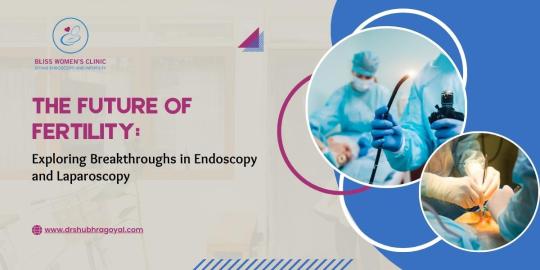
In medical science, the future of fertility and reproductive health is experiencing a revolutionary transformation through the remarkable advancements in Endoscopy and Laparoscopy. These innovative medical procedures have become instrumental in diagnosing and treating various reproductive health issues, offering hope to countless individuals and couples worldwide. In this article, we delve deep into the world of Endoscopy and Laparoscopy, uncovering their benefits and trends and why choosing Dr. Shubhra Goyal can indeed be a game-changer in your journey toward optimal reproductive health.
Laparoscopy and Endoscopy - what are they?
Due to their accuracy and efficacy, minimally invasive medical treatments like Endoscopy and Laparoscopy have become extremely popular in recent years. These procedures use specialized tools fitted with small cameras and lights that enable doctors to view and access inside organs without the need for open surgery.
Benefits of Endoscopic Examinations!
The following are some benefits: -
Minimal Scarring - Endoscopy and Laparoscopy require just small incisions, unlike traditional surgical techniques that demand extensive incisions. Due to the minimum scarring produced, patients recover more quickly and enjoy additional aesthetic benefits.
Less Pain and Discomfort - Patients who undergo endoscopic procedures often report less pain and discomfort following the operation. This is because these techniques are less intrusive than standard operations and result in less tissue damage.
Shorter Hospital Stays - Compared to conventional equivalents, endoscopic operations often require shorter hospital stays. Patients may resume their regular daily routines and activities more quickly as a result, which also lowers healthcare expenditures.
High accuracy - Using cutting-edge technology in endoscopic exams gives surgeons a degree of accuracy never before possible. They can traverse and treat delicate and difficult-to-reach locations with outstanding accuracy thanks to their precision, which ultimately improves patient surgery results.
Moving ahead, let's discuss,
Top Upcoming Trends in Endoscopy and Laparoscopy
The areas of Endoscopy and Laparoscopy are examples of the ongoing change taking place in the world of medical science. The following are some of the most notable new developments that are influencing how these processes may develop in the future:
Innovations in Endoscopic Imaging Technology - The endoscopic imaging technology industry is expanding quickly. This includes the creation of 3D imaging systems and high-definition cameras. These developments considerably increase diagnosis accuracy by providing surgeons with an incredibly thorough and accurate picture of inside organs.
Read More: https://www.drshubhragoyal.com/welcome/blogs/the-future-of-fertility:-exploring-breakthroughs-in-endoscopy-and-laparoscopy
#Endoscopy and Laparoscopy#Endoscopy and laparoscopy procedures#Medical uses of endoscopy and laparoscopy#Endoscopy vs. laparoscopy comparison#Benefits of endoscopic examinations#Laparoscopic surgery advancements#Gastrointestinal endoscopy techniques#Minimally invasive laparoscopic procedures#Endoscopic imaging technology#Laparoscopy in surgical diagnosis#Endoscopy for digestive disorders#Laparoscopy for abdominal surgeries#Endoscopy in medical diagnostics#Laparoscopic surgical instruments#Endoscopy for internal visualization#Laparoscopy and its applications#Endoscopic screening and treatment#Laparoscopic hernia repair#Endoscopy for upper GI tract
1 note
·
View note
Text
BEST ENT DOCTOR IN THRISSUR

When it comes to ear, nose, and throat (ENT) health, receiving expert care is essential for effective diagnosis and treatment. Whether you are experiencing chronic sinusitis, hearing loss, throat infections, or any other ENT condition, choosing the right specialist can make a significant difference in your health and well-being. If you are searching for the best ENT doctor in Thrissur, Karthiayani Hospital is the ultimate destination for top-quality ENT care.
Karthiayani Hospital has built a strong reputation for providing advanced medical care with a team of highly skilled ENT specialists. With cutting-edge facilities, personalized treatment plans, and a patient-first approach, the hospital ensures the best outcomes for all ENT-related conditions.
Why Karthiayani Hospital Stands Out for ENT Care
1. Highly Qualified ENT Specialists
Karthiayani Hospital is home to some of the best ENT doctors in Thrissur, renowned for their expertise in diagnosing and treating a wide range of ENT conditions. The specialists here have undergone rigorous training and have years of clinical experience, ensuring patients receive top-notch medical attention.
2. State-of-the-Art Medical Equipment
The hospital is equipped with advanced diagnostic tools, including high-resolution endoscopy, audiometry, and modern imaging technology. These tools allow for precise diagnosis and effective treatment planning for ENT conditions.
3. Comprehensive ENT Services
From routine check-ups to complex ENT surgeries, Karthiayani Hospital offers a full spectrum of ENT services, including:
Ear Conditions: Treatment for infections, tinnitus, hearing loss, and vertigo.
Nose and Sinus Disorders: Sinusitis, nasal polyps, allergic rhinitis, and breathing difficulties.
Throat and Voice Issues: Tonsillitis, hoarseness, difficulty swallowing, and voice disorders.
Hearing Rehabilitation: Cochlear implants and hearing aid consultations.
4. Personalized Patient Care
At Karthiayani Hospital, the focus is always on the patient. The doctors take time to understand individual health concerns and design personalized treatment plans that best suit the patient’s condition and lifestyle.
Meet the Best ENT Doctors at Karthiayani Hospital
1. Dr. Salison Paniker – Leading ENT Surgeon
With over eight years of experience, Dr. Salison Paniker is widely recognized as one of the best ENT doctors in Thrissur. His areas of expertise include:
Advanced ENT surgeries
Nasal and sinus disorder treatments
Cochlear implants for hearing restoration
Allergy and asthma management
Facial aesthetics procedures
Dr. Paniker has trained at prestigious institutions and has extensive experience in handling complex ENT cases, making him a trusted choice for ENT care.
2. Dr. Vidya Ramdas – Expert in Pediatric ENT and Sinus Care
Dr. Vidya Ramdas specializes in:
Pediatric ENT disorders
Sinus infections and nasal conditions
Chronic ear infections Her approach combines clinical expertise with compassionate care, ensuring the best treatment for patients of all ages.
3. Dr. Anju MR – Specialist in Hearing and Balance Disorders
Dr. Anju MR is a dedicated ENT expert focusing on:
Hearing loss and balance disorders
Voice and throat conditions
Pediatric ENT treatments Her commitment to innovative ENT care ensures that patients receive the latest and most effective treatments.
4. Dr. Joseph Nadakkavukaran – Expert ENT Surgeon
Dr. Joseph Nadakkavukaran is an experienced ENT specialist known for:
Complex ENT surgeries
Diagnostic precision in ENT conditions
Treatment of chronic ENT disorders His surgical skills and patient-focused approach make him a top ENT surgeon in Thrissur.
5. Dr. Renjith – Specialist in Allergy and Sinus Care
Dr. Renjith has expertise in:
Chronic sinusitis treatment
Allergy management
Pediatric ENT care His patient-centered treatment methods help individuals achieve long-term relief from ENT-related issues.
Specialized ENT Treatments Available at Karthiayani Hospital
1. Ear Disorders and Hearing Loss Treatment
Karthiayani Hospital provides advanced care for ear conditions, including:
Chronic ear infections
Tinnitus (ringing in ears)
Eardrum perforation repair
Hearing aids and cochlear implants
2. Nasal and Sinus Treatments
For nasal congestion, sinus infections, and breathing difficulties, the hospital offers:
Endoscopic sinus surgery
Allergy and asthma treatment
Septoplasty (nasal septum correction)
3. Throat and Voice Box Disorders
Patients with throat-related issues receive specialized treatment for:
Tonsillitis and adenoiditis
Vocal cord disorders
Swallowing difficulties
Sleep apnea and snoring disorders
4. Advanced ENT Surgeries
When medical management is not enough, surgical procedures are performed with precision, including:
Tympanoplasty (ear drum repair surgery)
Tonsillectomy and adenoidectomy
Nasal polyp removal
Why Karthiayani Hospital is the Best Choice for ENT Care
Expert Team: Highly skilled ENT doctors and surgeons.
Modern Technology: Use of advanced diagnostic tools and minimally invasive surgical techniques.
Affordable Care: High-quality treatment at reasonable costs.
Easily Accessible Location: Conveniently located in the heart of Thrissur at Parakkote Lane, Patturaikkal Junction.
Frequently Asked Questions (FAQs)
1. When should I see an ENT specialist?
You should consult an ENT doctor if you have:
Persistent ear infections or hearing issues
Chronic sinus congestion or nasal blockage
Frequent sore throats or hoarseness
Difficulty swallowing
2. What treatments are available for sinusitis?
Treatment options for sinusitis include:
Nasal sprays and medications
Allergy management
Endoscopic sinus surgery for severe cases
3. Can hearing loss be treated?
Yes, depending on the cause, hearing loss can be managed with:
Hearing aids
Cochlear implants
Surgical procedures for ear-related conditions
4. What are the benefits of getting a cochlear implant?
A cochlear implant can help individuals with severe hearing loss restore their ability to hear and communicate effectively.
2 notes
·
View notes
Text
There's something to be said about the public performance of discussing concepts like "how one's year went" and "plans for the next year" publically, but there's something nice about sharing these thoughts with the world - even if they are mostly melancholy this year.
This year has been... mixed, to say the least. On a personal level, I don't have much to comment on. I had a paid month off of work in May, which I spent traveling to a few places to see people I haven't seen in a long time (as well as visit family). This time off was really nice. Really, really nice. I wish this wasn't a once-in-a-blue-moon thing. I found such regularity in being around other people.
Beyond the personal, work has been much improved. A very long & tedious project finally finished. (Mostly. It has been over half a year and I am still helping to clean things up. I don't mind it, though; it can be interesting work at times, and when it isn't, it helps to pass the time.) Now that this monster of a project is done, work has mostly been steady & consistent - which is a boon considering Everything Else Going On.
Oh, the medical stuff. It started slowly this year, with a diagnostic colonoscopy + endoscopy revealing nothing regarding my energy levels, and has since spiraled into 5 months of endless appointments and tedious "following-up-on-people-who-should-have-done-things-independently". My PCP sucks (2 months to go until I get a new one) and treated me like shit. I got off of continuous iron supplementation, finally, after over 5 years. I tapered down my SSRIs. (I could not come off them completely, because apparently Lexapro enhances the affects of Adderall, and changing my Adderall dose during the ongoing DEA-manufactured "shortage" is, in my opinion, a non-starter.) I was diagnosed with obstructive sleep apnea & have been working to adjust to sleeping with a CPAP machine, which is still an ongoing process. I finally got into physical therapy, struggled immensely with it, and was then referred to aquatic physical therapy, which has gone really well - perhaps the only medical thing that really has gone well this year. I'm still seeing eating disorder specialists, even if I haven't made much headway there. (There's too much going on.) I still have many problems, and many which I believe to still be undiagnosed & untreated. I'm better than I was 2 years ago, but I don't think I'm better than I was last year.
I do think I've improved with keeping up with chores. I've hammered down quite a few to keep up with on a weekly basis. (Laundry, dishwasher, trash, recycling, mail, and groceries.) It is... mixed at times, but I do what I am able to. I overhauled a lot of what was in my bathroom this year too. I replaced my shower curtains. I finally had maintenance replace my shower head, after owning the thing for over 2 years. I got new bath mats. I cleaned out much of the old medicines & supplies. (The supplies are still waiting to be donated. That's for another day.)
That's about all I have for a reflection on the previous year. I don't fully remember what my resolve was for this year - if I had to hazard a guess, I wanted to keep a focus on medical things (which I definitely did, for better or for worse) and maintain some structure with chores (which is much improved over the past year - I am, at the very least, basically never backlogged on anything I consider to be in a maintenance state).
As for next year... the medical focus is self-explanatory (and necessary). I actually might even join a gym??? (It's really terrible that there's no way to access a warm water pool without paying for it in some capacity. Medical care is gate kept by money! Unsurprising.) I'll keep tweaking my CPAP settings in pursuit of better sleep. I would, eventually, like to get off of Lexapro entirely. A new PCP will hopefully mean a new set of eyes on all of my symptoms. And, energy permitting, I'd like to get back into cooking - which I think will help my eating disorder a bit. (I'm not sure if I will be able to do it without the support of a meal kit service. I'd like to be able to do that, but I'm really not sure where I stand there.)
Beyond the medical, I want work to remain mostly stable. I'll keep advocating to be paid more, but I'm not expecting much. At this point, the health insurance is so worthwhile that I'm not particularly interested in moving jobs (or moving period). And in my personal life, I want to keep working to make my apartment somewhere I am happy to be in - somewhere I am proud to have decorated and am proud to maintain.
That's about it. I hope 2024 is a better year. (At the very least, I hope it is okay.)
7 notes
·
View notes
Text
Choosing the Right Gastrointestinal Tract Drug – Factors to Consider
The gastrointestinal (GI) tract is a complex system responsible for digestion and absorption of nutrients. Given its critical function, disorders affecting the GI tract can significantly impact overall health and quality of life. Selecting the right medication to treat these conditions is essential for effective management and recovery. Centurion HealthCare, a leading gastrointestinal tract drugs supplier in India, offers a range of high-quality medications designed to address various GI disorders. In this article, we will explore the factors to consider when choosing the right gastrointestinal tract drug, and why Centurion HealthCare stands out in the best pharmaceutical industry in India.

Understanding Gastrointestinal Tract Disorders
GI tract disorders encompass a wide range of conditions affecting different parts of the digestive system, including the esophagus, stomach, intestines, liver, pancreas, and gallbladder. Common GI disorders include:
Gastroesophageal Reflux Disease (GERD)
Peptic Ulcer Disease
Irritable Bowel Syndrome (IBS)
Inflammatory Bowel Disease (IBD)
Hepatitis
Pancreatitis
Each condition requires specific treatment strategies and medications to manage symptoms, promote healing, and prevent complications.
Factors to Consider When Choosing a Gastrointestinal Tract Drug
Choosing the right drug for treating GI disorders involves multiple factors, including the specific condition, the patient’s medical history, and potential side effects. Here are key considerations:
1. Accurate Diagnosis
An accurate diagnosis is the first step in selecting the appropriate medication. Physicians use various diagnostic tools such as endoscopy, colonoscopy, imaging studies, and laboratory tests to identify the specific GI disorder. Understanding the underlying cause and severity of the condition is crucial for effective treatment.
2. Mechanism of Action
Different gastrointestinal tract drugs work through various mechanisms to achieve therapeutic effects. Understanding how a drug works helps in selecting the most suitable option. Common mechanisms include:
Antacids: Neutralize stomach acid, providing quick relief from heartburn and indigestion.
Proton Pump Inhibitors (PPIs): Reduce the production of stomach acid, effective in treating GERD and peptic ulcers.
H2 Receptor Antagonists: Decrease acid production by blocking histamine receptors in the stomach lining.
Prokinetics: Enhance gut motility, useful in conditions like gastroparesis.
Antispasmodics: Relieve intestinal cramps and spasms, often used in IBS treatment.
Anti-inflammatory Drugs: Reduce inflammation in the GI tract, essential for managing IBD.
3. Efficacy and Safety
The efficacy and safety profile of a drug are critical factors in the decision-making process. Clinical trials and real-world studies provide valuable information on a drug’s effectiveness and potential side effects. Physicians must weigh the benefits against the risks to ensure the chosen medication offers the best possible outcome for the patient.
4. Patient-Specific Factors
Each patient is unique, and various individual factors can influence drug selection. These include:
Age: Certain drugs may be more suitable for children, adults, or the elderly.
Medical History: Pre-existing conditions, such as kidney or liver disease, can affect drug metabolism and tolerance.
Allergies: Patients with known drug allergies must avoid medications that could trigger adverse reactions.
Concurrent Medications: Drug interactions can impact efficacy and safety, requiring careful consideration of all medications the patient is currently taking.
5. Route of Administration
The route of administration can affect the drug’s efficacy and patient compliance. Common routes for GI drugs include:
Oral: Tablets, capsules, and liquids are convenient for most patients.
Intravenous: Used in severe cases or when oral administration is not feasible.
Topical: Suppositories and enemas are used for localized treatment in the lower GI tract.
6. Cost and Availability
Cost can be a significant factor, especially for long-term treatments. Generic versions of drugs often offer the same efficacy as brand-name medications at a lower cost. Availability of the drug in the local market is also crucial to ensure uninterrupted treatment.
Centurion HealthCare: Leading the Way in GI Tract Drug Supply
Centurion HealthCare has established itself as a premier gastrointestinal tract drugs supplier in India, renowned for its commitment to quality, innovation, and patient care. Here’s why Centurion HealthCare is a trusted name in the best pharmaceutical industry in India:
1. Comprehensive Product Range
Centurion HealthCare offers a wide range of gastrointestinal tract drugs, catering to various GI disorders. Their product portfolio includes antacids, PPIs, H2 receptor antagonists, prokinetics, antispasmodics, and anti-inflammatory medications, ensuring comprehensive treatment options for healthcare providers.
2. Quality Assurance
Quality is at the heart of Centurion HealthCare’s operations. The company adheres to stringent quality control measures, from raw material sourcing to final product testing, ensuring that every medication meets international standards for safety and efficacy.
3. Research and Development
Centurion HealthCare invests heavily in research and development to stay at the forefront of pharmaceutical innovation. Their R&D team continuously works on developing new formulations and improving existing products to address emerging healthcare needs.
4. Patient-Centric Approach
Understanding that each patient is unique, Centurion HealthCare adopts a patient-centric approach in drug development and supply. Their medications are designed to provide maximum therapeutic benefit with minimal side effects, enhancing patient outcomes and quality of life.
5. Global Reach
As a leading gastrointestinal tract drugs supplier, Centurion HealthCare has a robust distribution network that ensures their products are available not only across India but also in international markets. Their commitment to excellence has earned them a reputation as a reliable partner for healthcare providers worldwide.
6. Affordability
Centurion HealthCare is dedicated to making high-quality medications accessible to all. Their cost-effective solutions, including generic versions of popular GI drugs, help reduce the financial burden on patients while maintaining high standards of care.
Conclusion
Choosing the right gastrointestinal tract drug involves careful consideration of various factors, including accurate diagnosis, mechanism of action, efficacy, safety, patient-specific factors, route of administration, and cost. Centurion HealthCare, as a leading gastrointestinal tract drugs supplier in India, excels in providing high-quality, effective medications that cater to the diverse needs of patients with GI disorders.
With a commitment to quality, innovation, and patient-centric care, Centurion HealthCare stands out in the best pharmaceutical industry in India. Their comprehensive product range, stringent quality assurance, advanced R&D, global reach, and affordability make them a trusted partner for healthcare providers seeking reliable solutions for GI tract disorders.
By choosing Centurion HealthCare, you can be confident in the quality and efficacy of the medications you are prescribing or consuming, ensuring the best possible outcomes for gastrointestinal health.
#Best Indian pharma industry 2024#Best pharmaceutical industry in India#Gastrointestinal tract drugs supplier#Gastrointestinal tract drugs supplier in India
3 notes
·
View notes
Note
I have a feeling doctors in my area are just not great. For many reasons. One that just flabbergasts me every time is that after diagnostic things like an endoscopy and bloodwork they proceed to ask me if I feel better and when I say no they tell me it all came back okay so am I sure and then when I say yes I'm sure they get snippy with me.
If you have had diagnostic tests for health things, do your doctors ask if doing the test or the results of the test make you feel better?
*Asks are for fun, no pressure.
Ohh, same here! The only time my doctor actually asked after my wellbeing was during the time I caught covid for the first time. But when I struggled with the aftereffects (I had a really bad autoimmune response to covid), she didn't take it serious, said I just had to wait it out and use some lotion (which I had been doing for two weeks before even visiting her).
My dermatologist is pretty great, though. Same problem as mentioned above. I went to her when I was beginning to feel pretty desperate, because I was dealing with the autoimmune response for a month by then. I had issues with my skin, my face was hit the hardest, bleeding and stuff, to the point I couldn't eat without pain. Well, let's just say she looked me over, found the right meds, checked my blood, let me come in a week later, when I was already doing considerably better and asked how I managed with the medication. I still have to use some very special kind of lotion or else the skin on my face acts up again, but it's managable now. With her, I know I'm in very good hands.
I'm not gonna add the story of my orthopaedist though, making a misdiagnosis and insisting on it's accurateness for ten years. That was just one clusterfuck after the other.
2 notes
·
View notes
Note
I have a feeling doctors in my area are just not great. For many reasons. One that just flabbergasts me every time is that after diagnostic things like an endoscopy and bloodwork they proceed to ask me if I feel better and when I say no they tell me it all came back okay so am I sure and then when I say yes I'm sure they get snippy with me.
If you have had diagnostic tests for health things, do your doctors ask if doing the test or the results of the test make you feel better?
*Asks are for fun, no pressure.
That's so frustrating. I usually have more 'well we didn't see anything so you'll need go to see this other doctor' they just play musical medical billing in my experience. I hope you find one that isn't so rude, my friend told me she found a doctor that is nice and takes her seriously, I hope there's more like that out there
2 notes
·
View notes